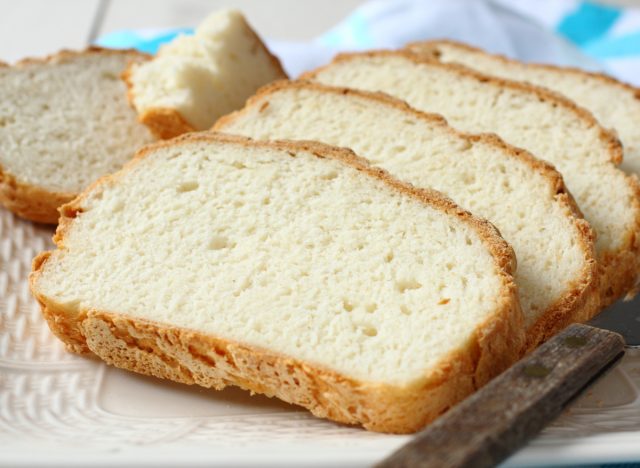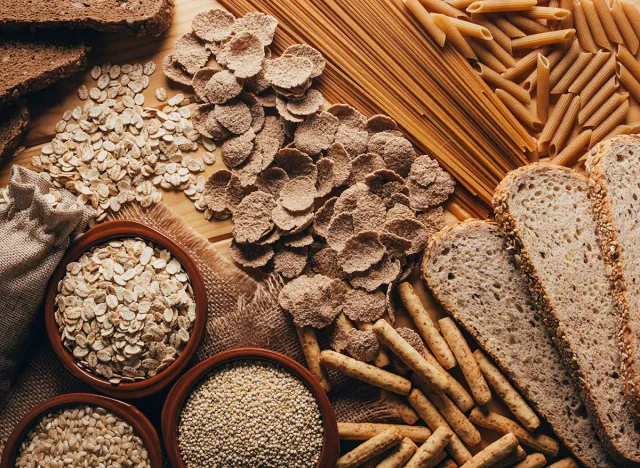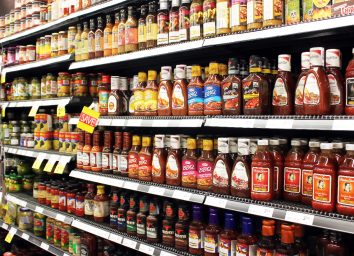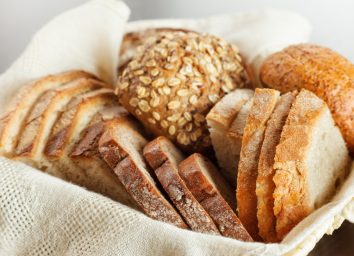Shoppers Are Avoiding This Popular Grocery Item, Says New Report

Grocery shopping is constantly changing, and so are the specific demands from shoppers across the nation. That’s why one company in particular set out to learn more about the groceries people are loving, and the ones they are avoiding.
Sifter SP, Inc. is a Chicago-based, shop-by-diet technology company that allows users to find grocery items based on their specific dietary preferences and avoidances. They wanted to learn more about the foods that shoppers seemed to be avoiding most often, so they gathered data from Sifter users over a period of six months.
Based on the site’s specific function where you can select categories you wish to avoid, Sifter discovered the top five grocery avoidances selected by their shoppers. In the very top spot on the list were gluten and wheat products, followed by dairy, added sugars, lactose, and artificial sweeteners or preservatives.
This brings up the age-old question: why do so many people try to avoid gluten, wheat, and other bread products? And if only a small portion of the population has celiacs or gluten intolerance, then why is it still so heavily avoided by shoppers?
Why is gluten so often avoided?

Some people may be avoiding gluten because they have an intolerance. Although gluten intolerance can be extremely uncomfortable and lead to inflammation, abdominal pain, bloating, and fatigue, research shows that it only affects about 6% of the US population.
There’s also a small portion of the population who has a severe autoimmune response to gluten, called Celiac disease. For those with Celiac, gluten can damage the small intestine and cause them to feel very sick.
Celiac disease and gluten intolerance only cover a small portion of shoppers in the US, and yet gluten is among some of the most avoided ingredients today. Unless someone has a medical condition related to gluten or wheat, they may be missing out on the benefits of certain gluten-filled or wheat-based food products.
Are there benefits to eating gluten?

One of the reasons people are so fearful of gluten is because they’re most likely associating it with refined carbohydrates. These heavily-processed wheat products (like white bread, for example) are made by stripping the grain of its fiber and nutrients. These might taste good, but they usually have no nutritional value whatsoever.
However, whole-grain items like whole-grain breads, brown rice, oats, and whole-wheat crackers are packed full of nutrients and can provide many different health benefits.
In fact, whole grains have been known to help lower blood pressure, help lower your risk of heart disease, and despite popular misconception, can even help you lose or manage your weight.
The takeaway

Shoppers are still heavily avoiding gluten, but it doesn’t mean you have to. Listen to your body, and if you feel discomfort after eating gluten, talk to your doctor about a possible elimination diet to see if gluten may to be blame.
But if you’re someone who feels fine after eating whole grain bread products, it may be perfectly fine to keep chowing down on your favorite toast or morning bowl of oatmeal.
For more healthy eating tips, check out Eating Habits for a Healthy Gut as You Age.









